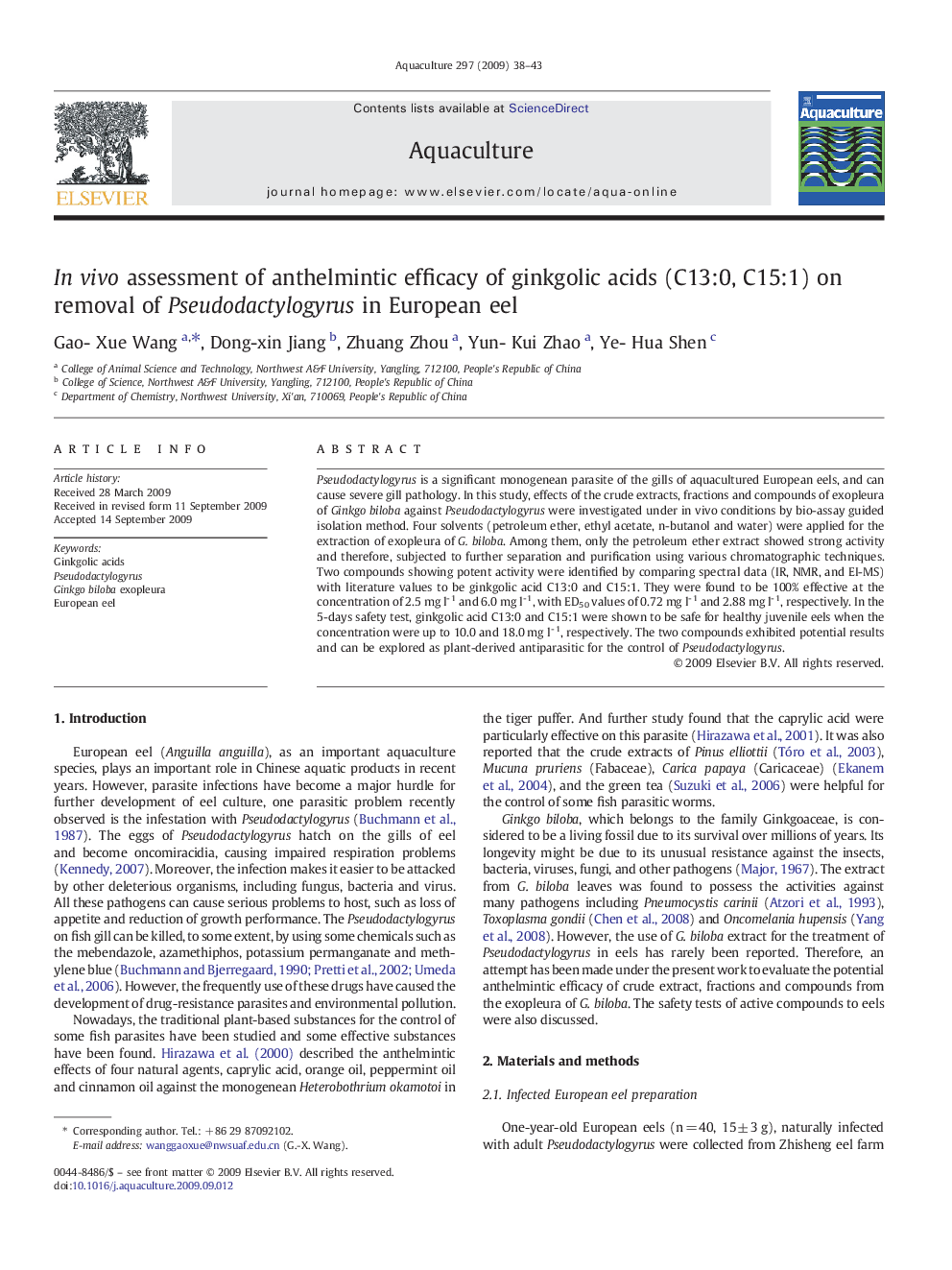| Article ID | Journal | Published Year | Pages | File Type |
|---|---|---|---|---|
| 2423793 | Aquaculture | 2009 | 6 Pages |
Pseudodactylogyrus is a significant monogenean parasite of the gills of aquacultured European eels, and can cause severe gill pathology. In this study, effects of the crude extracts, fractions and compounds of exopleura of Ginkgo biloba against Pseudodactylogyrus were investigated under in vivo conditions by bio-assay guided isolation method. Four solvents (petroleum ether, ethyl acetate, n-butanol and water) were applied for the extraction of exopleura of G. biloba. Among them, only the petroleum ether extract showed strong activity and therefore, subjected to further separation and purification using various chromatographic techniques. Two compounds showing potent activity were identified by comparing spectral data (IR, NMR, and EI-MS) with literature values to be ginkgolic acid C13:0 and C15:1. They were found to be 100% effective at the concentration of 2.5 mg l- 1 and 6.0 mg l- 1, with ED50 values of 0.72 mg l- 1 and 2.88 mg l- 1, respectively. In the 5-days safety test, ginkgolic acid C13:0 and C15:1 were shown to be safe for healthy juvenile eels when the concentration were up to 10.0 and 18.0 mg l- 1, respectively. The two compounds exhibited potential results and can be explored as plant-derived antiparasitic for the control of Pseudodactylogyrus.
